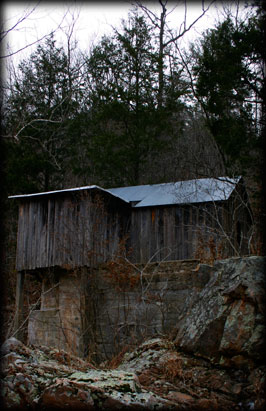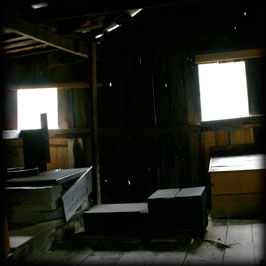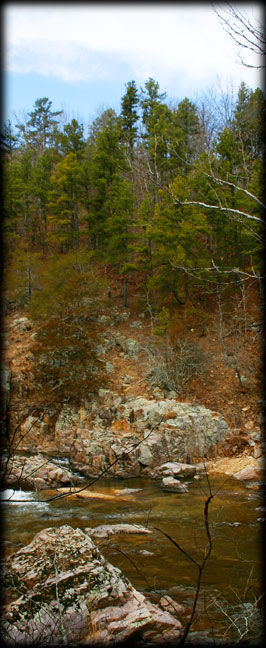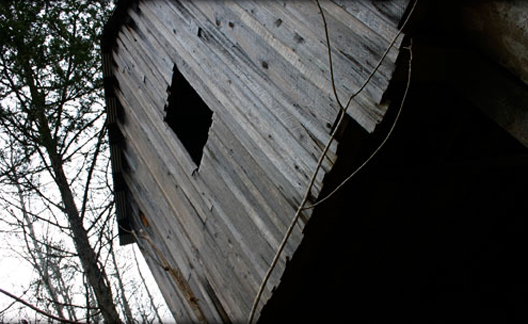Ozark Mills
By Joshua Heston
Throughout the Ozarks, mills are often overlooked by other, more popularized elements of the region. It is with anticipation that this editor looks forward to reporting on the mills of the Ozarks.
The Klepzig Mill
This small grist and sawmill is typical of the dozens which dotted the region near the turn of the century. Located along creeks and at large springs, most served only a few nearby farms in the same hollow.
The Klepzig Mill was built before 1912 by a farmer seeking to grind corn, saw logs into lumber and — in the 1940s — to generate electricity for the nearby farmstead.
It utilized a turbine to transfer the water's power to the machinery. The structure's construction is also typical of the region and era. Built of sawn boards with no framing, many turn of the century buildings were of this “sawmill house” style.
— Information courtesy of the National Park Service, U.S. Department of the Interior, Ozark National Scenic Riverways
From Phyllis Rossiter:
“Perhaps the most tangible — and eloquent — echo of Ozarks-past is an old water mill. Looming out of the river's morning mists a shadowy, multistoried millhouse seems almost haunted, a fading reflection of a vanished way of life. It fosters the feeling that through narrowed eyes we might glimpse the teeming activity that once attended it.
“Nowhere is that more apparent than at the surviving water mills in Ozark County...”
— page 346, Rossiter, Phyllis, A Living History of the Ozarks, Pelican Publishing Company Inc., 1992, 2001, 2006.
plate 1. Klepzig Mill and Rocky Creek, rural Shannon County near Current River.

plate 2.

plate 3.

plate 4.




